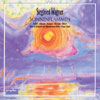Wagner, S Sonnenflammen
The son’s crusade to escape Wagner’s influence brings a vigorous response
View record and artist detailsRecord and Artist Details
Composer or Director: Siegfried (Helferich Richard) Wagner
Genre:
Opera
Label: CPO
Magazine Review Date: 4/2006
Media Format: CD or Download
Media Runtime: 133
Mastering:
Stereo
DDD
Catalogue Number: CPO777 097-2

Tracks:
| Composition | Artist Credit |
|---|---|
| Sonnenflammen |
Siegfried (Helferich Richard) Wagner, Composer
Anke Berndt, Eunoë, Soprano Anke Berndt, Dance Interpreter, Soprano Eva Bátori, Iris, Soprano Gerd Vogel, Beggar, Bass Gerd Vogel, Venetian Ambassador, Bass Halle Opera House Chorus Halle Opera House Orchestra Jordi Molina, Winegrower, Tenor Jordi Molina, Servant, Tenor Jürgen Trekel, Albrecht, Bass Ki-Hyun Park, Soothsayer, Bass Ki-Hyun Park, Conspirator 1, Bass Michaela Schuster, Irene, Soprano Nils Giesecke, Gomella, Tenor Olaf Schröder, Messenger, Bass Olaf Schröder, Conspirator 2, Bass Olaf Schröder, Slave, Bass Richard Brunner, Fridolin, Tenor Roger Epple, Conductor Roman Trekel, Alexios, Baritone Siegfried (Helferich Richard) Wagner, Composer Ulrich Studer, Gottfried, Baritone Ulricke Schneider, Eustachia, Contralto (Female alto) |
Author: John Warrack
Siegfried Wagner’s operas have fared well at the hands of CPO and now comes Sonnenflammen, eighth of the 18 he wrote. Composed in 1912, it had its first production in 1918, and others followed (including one with Tauber) before it disappeared into an oblivion partly engineered by the ever-contentious Wagner family. The programme booklet mentions recent revivals in the course of a tortuous discussion whose clarity is not helped by an erratic translation. Set in Constantinople at the time of the Fourth Crusade, the plot is of a complexity that could for once accurately be described as Byzantine. It is too involved to summarise but concerns the lives and loves of the Empress Irene, who loves the Emperor Alexios, who loves Iris, who belatedly admits her love for the reluctant Crusader knight Fridolin as he kills himself. The opera ends with the city going up in flames. Siegfried’s libretto provides himself with what he needs, a rapid succession of dramatic moments rather than a larger dramatic structure. The music settles a few obvious debts to his father but has its own energy and lyricism, and a good ear for orchestral colour. Roger Epple gives an enthusiastic lead to his Halle forces and to his cast, including vigorous portrayals of Iris by Eva Bátori and of the tormented Fridolin by Richard Brunner.
Discover the world's largest classical music catalogue with Presto Music.

Gramophone Digital Club
- Digital Edition
- Digital Archive
- Reviews Database
- Full website access
From £8.75 / month
Subscribe
Gramophone Full Club
- Print Edition
- Digital Edition
- Digital Archive
- Reviews Database
- Full website access
From £11.00 / month
Subscribe
If you are a library, university or other organisation that would be interested in an institutional subscription to Gramophone please click here for further information.




